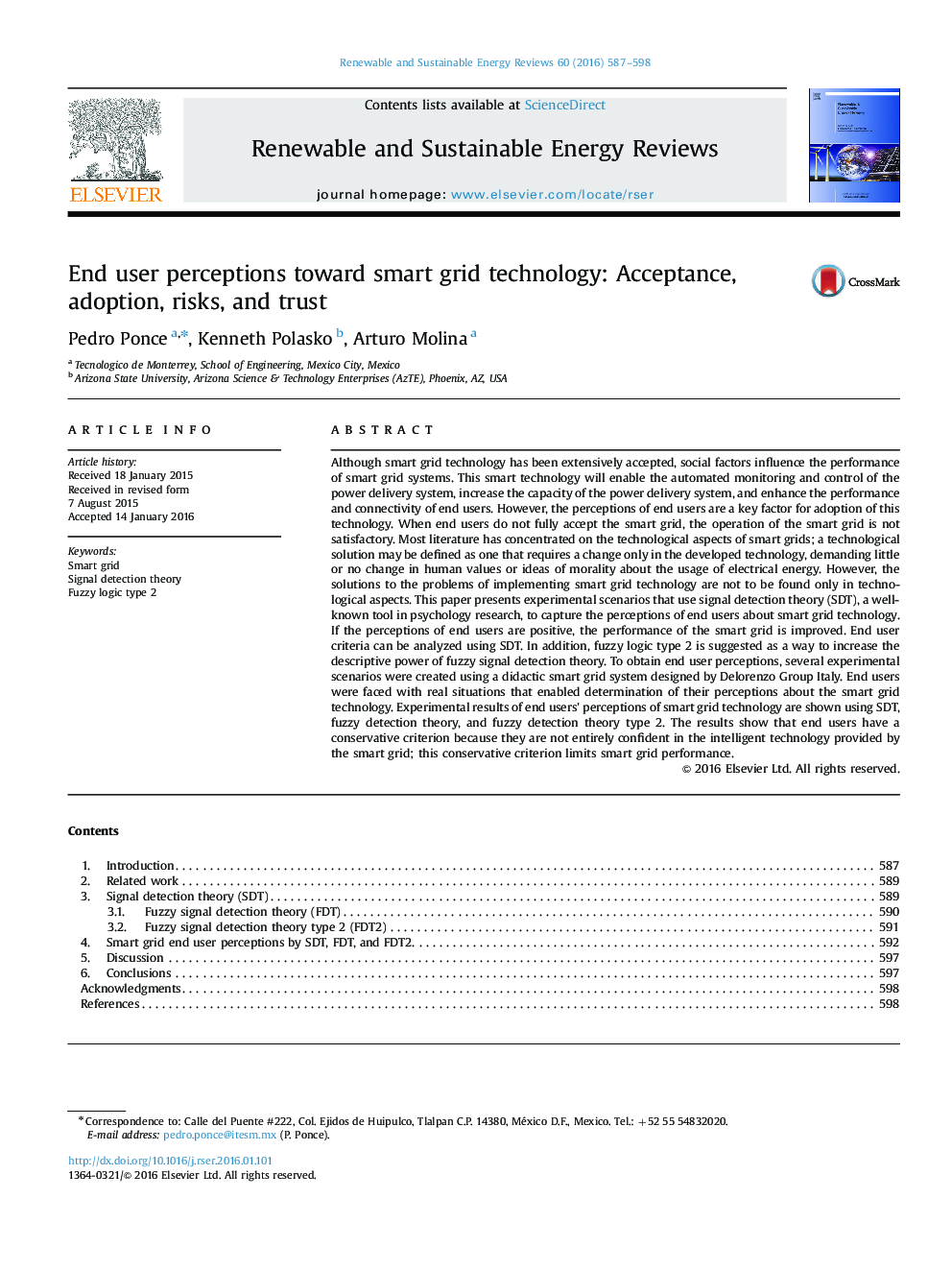| کد مقاله | کد نشریه | سال انتشار | مقاله انگلیسی | نسخه تمام متن |
|---|---|---|---|---|
| 8113977 | 1522325 | 2016 | 12 صفحه PDF | دانلود رایگان |
عنوان انگلیسی مقاله ISI
End user perceptions toward smart grid technology: Acceptance, adoption, risks, and trust
ترجمه فارسی عنوان
نگرش کاربران به فناوری شبکه هوشمند: پذیرش، خطرات و اعتماد
دانلود مقاله + سفارش ترجمه
دانلود مقاله ISI انگلیسی
رایگان برای ایرانیان
کلمات کلیدی
شبکه هوشمند، تئوری تشخیص سیگنال، منطق فازی نوع 2،
موضوعات مرتبط
مهندسی و علوم پایه
مهندسی انرژی
انرژی های تجدید پذیر، توسعه پایدار و محیط زیست
چکیده انگلیسی
Although smart grid technology has been extensively accepted, social factors influence the performance of smart grid systems. This smart technology will enable the automated monitoring and control of the power delivery system, increase the capacity of the power delivery system, and enhance the performance and connectivity of end users. However, the perceptions of end users are a key factor for adoption of this technology. When end users do not fully accept the smart grid, the operation of the smart grid is not satisfactory. Most literature has concentrated on the technological aspects of smart grids; a technological solution may be defined as one that requires a change only in the developed technology, demanding little or no change in human values or ideas of morality about the usage of electrical energy. However, the solutions to the problems of implementing smart grid technology are not to be found only in technological aspects. This paper presents experimental scenarios that use signal detection theory (SDT), a well-known tool in psychology research, to capture the perceptions of end users about smart grid technology. If the perceptions of end users are positive, the performance of the smart grid is improved. End user criteria can be analyzed using SDT. In addition, fuzzy logic type 2 is suggested as a way to increase the descriptive power of fuzzy signal detection theory. To obtain end user perceptions, several experimental scenarios were created using a didactic smart grid system designed by Delorenzo Group Italy. End users were faced with real situations that enabled determination of their perceptions about the smart grid technology. Experimental results of end users׳ perceptions of smart grid technology are shown using SDT, fuzzy detection theory, and fuzzy detection theory type 2. The results show that end users have a conservative criterion because they are not entirely confident in the intelligent technology provided by the smart grid; this conservative criterion limits smart grid performance.
ناشر
Database: Elsevier - ScienceDirect (ساینس دایرکت)
Journal: Renewable and Sustainable Energy Reviews - Volume 60, July 2016, Pages 587-598
Journal: Renewable and Sustainable Energy Reviews - Volume 60, July 2016, Pages 587-598
نویسندگان
Pedro Ponce, Kenneth Polasko, Arturo Molina,
